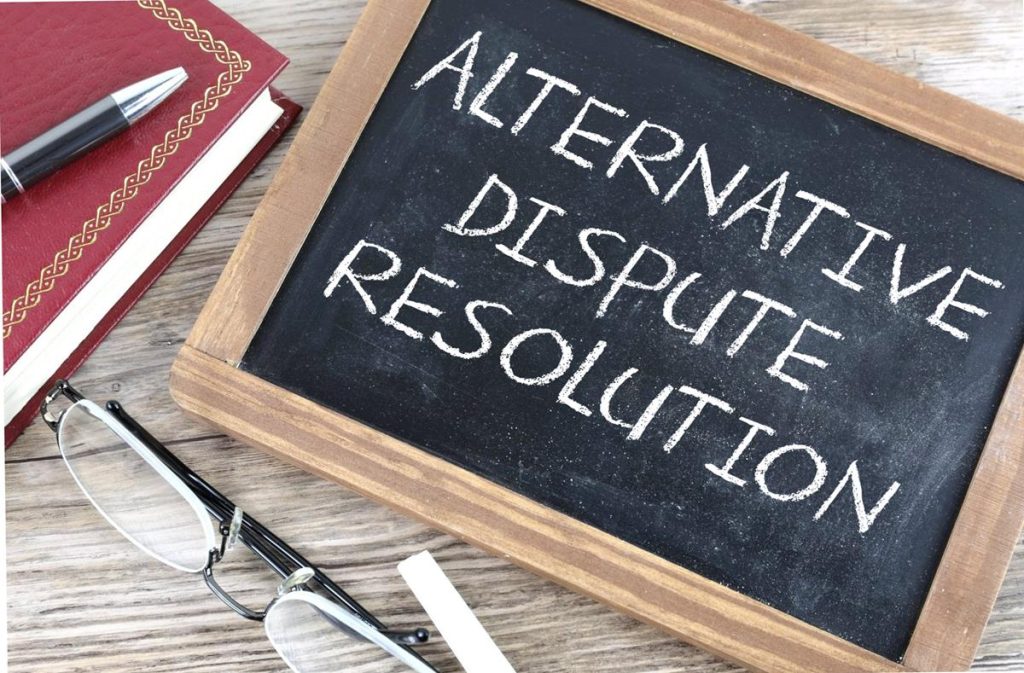How Do Dispute Resolution Lawyers Help Businesses Avoid Costly Court Battles?
Dispute resolution lawyers help businesses avoid court battles by resolving conflicts through alternative methods that save time, money, and commercial relationships. Court proceedings drain resources, damage reputations, and create uncertainty that most businesses cannot afford.
property dispute lawyer guide companies through structured approaches that address conflicts before they escalate into formal litigation. Their expertise lies in identifying the most appropriate resolution pathway based on the dispute’s nature and the business’s specific objectives.
Key strategies include:
- Negotiation – facilitating direct discussions between parties to reach mutually acceptable agreements
- Mediation – using neutral third parties to guide confidential settlement conversations
- Arbitration – providing binding decisions outside public courtrooms
- Proactive risk management – drafting clear contracts with dispute resolution clauses to prevent conflicts
The legal system actively encourages early resolution through these alternative dispute resolution (ADR) methods. Businesses that engage dispute resolution lawyers early in conflicts typically achieve faster outcomes whilst preserving valuable partnerships and avoiding the unpredictability of court judgements.
What Types of Business Disputes Do These Lawyers Commonly Handle?
Dispute resolution lawyers regularly address conflicts stemming from contracts, partnerships, supply agreements, and payment disagreements. These business disputes typically emerge when one party believes another has failed to meet obligations or when terms remain ambiguous.
1. Contract Disputes
Contract disputes form the largest category, involving disagreements over interpretation, performance standards, delivery timelines, or payment terms. For example:
- A supplier might claim a buyer breached payment schedules.
- The buyer argues goods failed to meet specifications.
2. Partnership Conflicts
Partnership conflicts arise when co-owners disagree on profit distribution, management decisions, or exit strategies.
3. Supply Agreement Disputes
Supply agreements generate disputes when quality standards, delivery volumes, or pricing terms become contentious between manufacturers and distributors. In such cases, it’s essential to understand the legal framework governing these agreements, such as the Uniform Commercial Code in Texas which provides guidelines for commercial transactions.
Most business conflicts stem from misunderstandings about expectations. When parties interpret clauses differently or assume verbal agreements hold legal weight, tensions escalate quickly. Vague language in agreements leaves room for competing interpretations, transforming minor disagreements into significant commercial problems requiring legal intervention. Often, these disputes can be resolved through effective negotiation and communication with the help of legal professionals who specialize in resolving disputes.
How Do Dispute Resolution Lawyers Use Negotiation to Prevent Litigation?
Dispute resolution lawyers facilitate direct discussions between parties to reach mutually acceptable solutions without court involvement. They prepare clients by analysing strengths and weaknesses, setting realistic objectives, and developing strategic approaches that protect business interests whilst remaining open to compromise.
Negotiation delivers three critical advantages for businesses:
- Speed: Disputes resolve in weeks rather than months or years
- Cost savings: Legal fees remain minimal compared to court proceedings
- Relationship preservation: Parties maintain working relationships through collaborative problem-solving
A supplier dispute over delayed deliveries might result in revised payment terms and adjusted delivery schedules rather than contract termination. Partnership disagreements about profit distribution often settle through renegotiated agreements that satisfy both parties’ core concerns. Payment disputes frequently resolve when lawyers facilitate structured discussions revealing underlying issues—such as quality concerns or administrative errors—that simple communication addresses without formal proceedings.
Lawyers guide these conversations strategically, ensuring agreements are legally sound whilst achieving cost-effective dispute resolution that protects long-term business interests.
What Role Does Mediation Play in Avoiding Court Battles?
Mediation is a structured method of resolving disputes without going to court. It involves a neutral third party, known as a mediator, who helps facilitate communication between businesses in conflict. The mediator does not make decisions for the parties involved but instead creates a safe space for them to express their concerns, explore their interests, and work towards finding mutually acceptable solutions.
The Role of the Mediator
The main focus of the mediator is to improve communication between parties who may have reached a deadlock. They do this by:
- Identifying areas of agreement
- Reframing positions to encourage understanding
- Guiding discussions towards practical outcomes while remaining neutral
Advantages of Mediation for Businesses
Mediation offers several advantages for businesses looking to avoid litigation:
- Privacy: Mediation sessions are confidential, meaning that sensitive business information and reputations are protected from public scrutiny.
- Speed: Most mediations are resolved within days or weeks, whereas court cases can take months or even years.
- Cost efficiency: Legal fees and administrative costs associated with mediation are significantly lower than those incurred during court proceedings.
- Relationship preservation: The collaborative nature of mediation helps maintain ongoing commercial partnerships.
Who Can Benefit from Mediation?
Mediation is particularly beneficial for businesses involved in supply chain disputes or partnership disagreements. It allows them to resolve conflicts while keeping working relationships intact, which is crucial for future collaboration.
When Is Arbitration Preferred Over Litigation?
Arbitration becomes the preferred choice when businesses face complex, high-value disputes requiring expert decision-makers and confidential resolution. This private dispute resolution method involves appointing an arbitrator—often a specialist in the relevant industry—who reviews evidence and issues binding decisions that parties must follow.
The process suits disputes involving technical matters, international contracts, or situations where parties want to avoid public scrutiny. Construction defects, intellectual property conflicts, and multi-million-pound commercial disagreements often proceed through arbitration rather than open court.
Cost comparisons reveal nuanced differences. Simple arbitrations may cost less than litigation, whilst complex cases with multiple arbitrators can match or exceed court expenses. The trade-off lies in speed and control—arbitration typically concludes faster than court proceedings, which can drag on for years.

Confidentiality stands as arbitration’s most compelling advantage. Proceedings remain private, protecting sensitive business information, trade secrets, and reputational interests from public exposure. The finality of arbitral awards, with extremely limited appeal rights, provides certainty and closure. Parties receive a definitive resolution without the risk of prolonged appeals that characterise traditional litigation. Click here to get about: What do Divorce Lawyers in Sydney recommend for dividing superannuation fairly?
Why Do Dispute Resolution Lawyers Consider Litigation as a Last Resort?
Dispute resolution lawyers view litigation as a last resort because it can be time-consuming, expensive, and damaging to relationships. Instead, they explore alternative methods of resolving disputes, such as negotiation or mediation, which can often lead to more favourable outcomes.
When Is Litigation Necessary?
There are certain situations where litigation becomes unavoidable:
- Fraud: When fraudulent activities are involved, legal action may be necessary to seek justice and recover losses.
- Breach of fiduciary duty: If someone in a position of trust fails to fulfil their obligations, litigation may be required to hold them accountable.
- Urgent injunctive relief: In cases where immediate action is needed to prevent harm or protect rights, going to court may be the only option.
These circumstances require formal court proceedings because alternative methods cannot provide the necessary legal remedies or enforcement powers.
How Do Dispute Resolution Lawyers Prepare for Litigation?
Dispute resolution lawyers understand that litigation can be complex and demanding. To help businesses navigate this process, they develop comprehensive strategies that address both litigation risks and public exposure.
Some key steps involved in preparing for litigation include:
- Conducting thorough case assessments: Lawyers analyse the strengths and weaknesses of the case to determine the best course of action.
- Gathering evidence systematically: Collecting relevant documents, witness statements, and expert opinions is crucial for building a strong case.
- Creating budgets that account for legal fees, expert witnesses, and potential appeals: Understanding the financial implications of litigation helps businesses make informed decisions.
This preparation is essential for helping businesses understand the full scope of commitment required if they choose to pursue legal action.
What Are the Downsides of Choosing Litigation?
While litigation may be necessary in certain situations, it also comes with significant drawbacks:
- Time consumption: Cases often span months or years, diverting management attention from core business operations.
- Relationship damage: Adversarial court battles typically destroy any possibility of future commercial partnerships.
- Reputational impact: Public court records expose sensitive business information to competitors and customers.
- Cost escalation: Legal expenses multiply through discovery, motions, and trial preparation.
How Do Lawyers Approach Settlement Negotiations?
Even after proceedings begin, lawyers continue to explore settlement opportunities. They recognise that winning in court doesn’t always guarantee success when considering damaged relationships and increasing costs.
By prioritising negotiation and seeking mutually beneficial solutions whenever possible, dispute resolution lawyers aim to minimise the negative consequences associated with litigation while still protecting their clients’ interests.
How Do Dispute Resolution Lawyers Help Prevent Disputes Before They Arise?
Dispute prevention starts with well-drafted contracts that anticipate potential conflicts and establish clear procedures for resolution. Lawyers embed specific dispute resolution clauses that outline step-by-step processes—from negotiation to mediation or arbitration—before parties can pursue litigation.
Key preventive measures include:
- Precise contract terms defining obligations, payment schedules, deliverables, and termination conditions
- Dispute escalation clauses requiring parties to attempt negotiation or mediation first
- Jurisdiction and governing law provisions eliminating uncertainty about where disputes will be resolved, such as a well-defined jurisdiction clause
Lawyers advise businesses on risk management strategies by identifying potential conflict areas during deal structuring. They review existing agreements, flag ambiguous language, and recommend amendments to reduce exposure. This proactive approach includes training management teams to recognise early warning signs of disputes.
The long-term benefits of this legal planning extend beyond avoiding court battles. Businesses save substantial legal fees, maintain supplier and partner relationships, and protect their market reputation. Clear contractual frameworks also streamline operations by reducing misunderstandings that typically escalate into formal disputes.
How Do Tailored Strategies Minimise Costs and Protect Business Interests?
Dispute resolution lawyers assess each conflict individually, selecting methods that align with the business’s priorities and the dispute’s complexity. A minor contractual disagreement might warrant quick negotiation, while a multi-million-pound partnership breakdown could require formal arbitration.
Tailored dispute resolution strategies balance speed with thoroughness. Lawyers evaluate factors like the relationship’s value, urgency, and potential reputational impact before recommending a path forward. A supplier dispute threatening production might need immediate mediation, whereas a historical payment claim could proceed through slower channels.
Minimising legal costs means choosing proportionate responses. Lawyers prevent businesses from over-investing in minor disputes or under-preparing for significant ones. They identify when a firm negotiating stance saves more than prolonged mediation costs.
Protecting reputation remains paramount in strategy selection. Confidential arbitration shields sensitive commercial information from competitors, while carefully managed negotiations prevent public fallouts that damage brand credibility. Expert guidance ensures businesses resolve conflicts without sacrificing their market standing or valued partnerships.

Conclusion
How Do Dispute Resolution Lawyers Help Businesses Avoid Costly Court Battles? They provide strategic guidance that transforms potential legal crises into manageable business challenges through proven alternative methods.
Engaging experienced dispute resolution lawyers represents a sound investment in business conflict management rather than an expense. These professionals deliver an effective dispute resolution strategy tailored to each unique situation, whether through negotiation, mediation, or arbitration. Their expertise prevents minor disagreements from escalating into expensive, time-consuming court proceedings.
The value extends beyond immediate cost savings. Lawyers skilled in avoiding costly litigation protect what matters most: business relationships, commercial reputation, and operational continuity. They equip organisations with preventative measures through robust contracts and risk management frameworks that reduce future conflict likelihood.
Businesses that prioritise dispute resolution expertise gain competitive advantages through faster conflict resolution, preserved partnerships, and protected resources. The question isn’t whether to engage these specialists, but rather how soon to establish that relationship before disputes arise.


